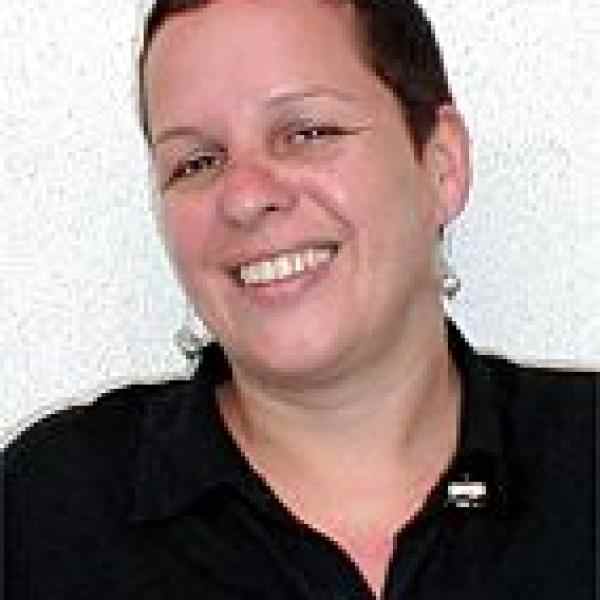Introduction
Elsa María Zaldivar helps rural women producers in Paraguay improve the quality and marketing of their products and explore new, profitable markets. By tapping into community resources and investing in mechanisms for better market access, she allows women to bring their goods to the global marketplace and earn more money in the process.
The New Idea
In Paraguay, where the income of rural families is closely linked to the price of cotton, Elsa María has created a small but profitable industry of organic lufa cultivation. By drawing on local agricultural knowledge, she brings together organic farmers producing high quality lufa, a substitute for cotton and the plantation-style processed lufa produced in China. Women in Elsa María's network use local resources like non-chemical fertilizer and employ natural techniques to minimize expenses and respect the environment as a long-term resource. In addition to teaching concrete skills related to agriculture and marketing, Elsa María makes women's participation central in the development of their communities.
The Problem
For the past thirty years, Paraguayan farmers have relied heavily on the cultivation of cotton. The environment in Paraguay, however, cannot support a large cotton industry, which means that Paraguayan farmers are not positioned to gain a significant share of the regional or global cotton market. Declining cotton yields have pushed more families into poverty, and neighbouring countries' products have begun to cut out even the most successful Paraguayan farmers. A global oversupply of cotton has driven down prices over the past few years, and as a result, many Paraguayan farmers have turned to subsistence-level agriculture. In contrast, lufa has flourished in Paraguay, despite never having been marketed as a key export. China is by far the largest producer, followed by Mexico, Brazil, Costa Rica, and Jamaica. Although a market for organic and natural health and beauty supplies flourishes around the world, the large lufa producers chemically bleach their products to remove stains, leaving a residue harmful to humans and unattractive to some consumers.
The Strategy
Elsa Maria had worked with rural women's organizations for several years when she realized that, without concrete economic alternatives, she could not expect to make substantial improvements in the lives of the women in these groups. After a period of careful research and testing, she found that lufa, an often overlooked and still under-utilized resource, was the most cost-effective and potentially sustainable alternative to cotton. She launched her pilot lufa cooperative production program with fifteen women in Caguasu, about one hundred kilometres outside of Asunción. Her experience with agronomists and other professionals who claimed to be familiar with the cultivation of lufa proved to be less than a success so Elsa María set up a testing program of her own, employing various mixtures of local fertilizer, trellis designs, and pruning techniques. Her team produced hundreds of lufa, monitoring the plant to see which cultivation techniques caused discoloration, which variation of seeds produced the clearest, most unblemished sponges, and which processes best stood up to the elements. By the program's fifth year in Caguasu, she had built an association of two hundred women producing ten thousand units of pristine raw lufa and high-quality sponges for sale and export. After developing the most efficient and effective methods of production, Elsa María increased capacity by investing in equipment to produce matting, packaging materials, and labels for the finished products. A local chain of drug stores agreed to buy all outputs from the processing facility set up at the women's cooperative. As she increases and improves production, Elsa María is exploring opportunities to sell sponges and other lufa items to environmentally conscious external markets, in Europe, Great Britain, and the United States. Elsa María also works with rural communities to spread knowledge of proper cultivation techniques, encouraging women throughout Paraguay and around Latin America to form cooperatives. The central mission of her workshops and consultancies, though, remains autonomous decision-making power invested in each women's group, drawing on each other and Elsa María for best practices, effective strategies, and a network of equipment suppliers and new domestic and international markets to access. Elsa María instills in all women with whom she works a sense of community, confidence to deal with technical issues, and a focus on the achievement of scale.
The Person
Elsa María grew up in a large family in Asunción, where she began working on social projects, like tutoring in poor neighbourhoods, at a very young age. Her father was a politician who opposed the military dictatorship and her mother was an actress. After completing her degree in journalism in 1992, she attended the National Constitutional Convention and, shortly thereafter, began to work with rural women in Caguasu, an area that had experienced particularly severe deforestation throughout the 1970s and '80s. While she initially helped women's groups address health concerns and produce traditional handicrafts, she turned her attention to alternative plan species after Paraguay's cotton industry began to fall apart. Her work with organic lufa has garnered a positive response from women's organizations, environmentalists, and consumers and is now bringing her program to an international audience.
